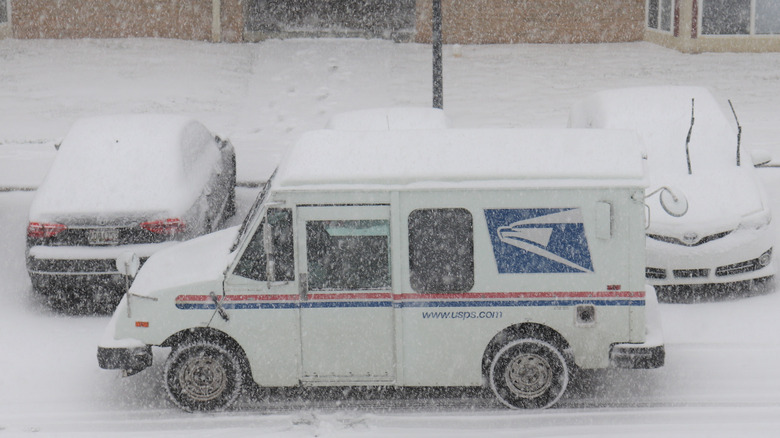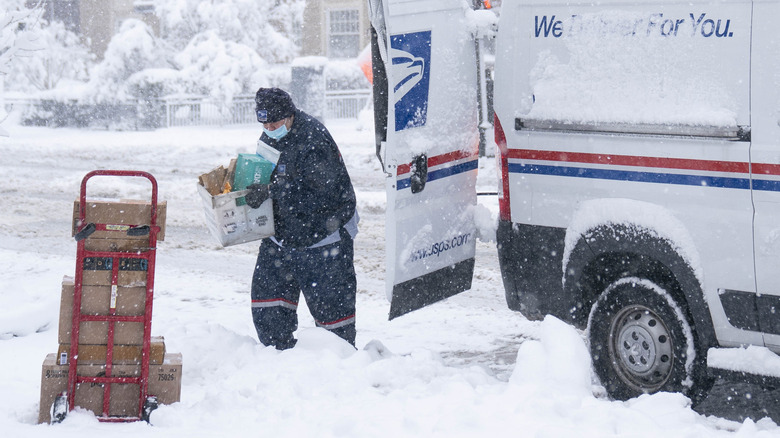Ordering Home COVID-19 Tests Through The Mail Might Not Be A Good Idea
In an attempt to help Americans deal with the surge of the highly contagious Omicron variant, the Biden administration is shipping a billion COVID-19 home tests to people across the nation free of charge, according to The White House. But since much of the country is still in the grips of winter, there is some concern about whether the cold weather will damage the at-home tests and even affect the test results.
If the liquid inside the test cartridge is frozen, the accuracy can be affected. Dr. Geoffrey Baird, chair of laboratory medicine and pathology at the University of Washington's School of Medicine, tells USA Today, "Just as anything with liquid, if it's chilled or frozen, it changes. That's the same with these at-home tests."
According to a 2021 study published in the Journal of Clinical Virology, both extremely low and extremely high temperatures can skew test results, including more false negatives than in regular circumstances. This means that people receiving at-home COVID-19 tests through mail need to be careful that they don't sit for too long in the mailbox in either the winter or the summer.
How to store your COVID-19 test kit properly
The best way to make sure your at-home COVID-19 test is not damaged is to bring it into your home and out of extreme weather as soon as possible (via NBC News). Dr. Amy Mathers, associate professor of medicine and pathology and associate director of clinical microbiology at the University of Virginia School of Medicine, tells NBC News, "If you warm them back up to room temperature when you run them, they do seem to work quite well." Ideally, the tests can be stored at a temperature between 35 and 86 degrees.
Since temperatures remain cool across the country, receiving them through the mail shouldn't deter you from using them. Note that you can also obtain at-home test kits through your private insurer, and The White House has mandated that private health insurance offer eight free tests per person per month.


